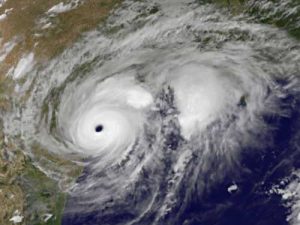
Most anglers are aware that rain events can have significant impacts on freshwater fisheries. Depending on local conditions, rain can improve fishing or bring it to a standstill.
Rain events can affect fish in many ways. Freshwater fish are affected by local rainfalls as well as water flows from upstream.
Pre-storm Fish Behavior
Rainy weather is usually preceded by a falling barometer. When barometric pressure drops occur suddenly, fish may feed aggressively.
Fish may also move in reaction to changing weather. These mass movements can create fishing opportunities for anglers.
Fishing in Rain
Despite numerous challenges, anglers sometimes fish in the rain. The effects of precipitation on fishing can vary considerably depending on location, rainfall amounts, and other factors.
In some situations, fishing may actually improve. Periods of light rain or intermittent showers are generally considered beneficial for fishing.
For example, anglers often benefit from visual limitations caused by rain. Rain drops spatter the water surface and clouds impede sunlight, making it harder for fish to see lines, hooks, shadows, and other visual clues that might spook them. These conditions can aid anglers as normally wary fish may strike better.
In some areas, light rain can create special conditions that attract fish. Rainfall often dislodges insects from trees and overhanging vegetation into the waters below. These areas can become feeding stations for hungry trout, catfish, panfish, and other opportunistic feeders.
Similar conditions can occur where small streams enter larger bodies of water. These junctions can hold multiple species of fish, all gathered to feast on prey that is flushed into the open water.
Each of these situations can impact lures, baits, tackle, and other equipment. When waters become murky, anglers often switch to brighter color lures. For bait fishermen, matching the predominant food source may be important.
During more severe weather, fishing may come to an abrupt halt, especially when high winds, lightning, or dangerous water flows exist.
Post Storm Fishing
Initially, fishing may be suppressed by rainy weather. Water conditions are often poor, especially when silt from excess runoff creates turbid or murky conditions. Water temperature and oxygen content can also be altered by rainfall. In some cases rains can cause a chain reaction as silt and nutrients result in plant aquatic die-offs, plankton blooms, or other natural events.
Anglers may find that fish change their diets temporarily after recent rain events. An example of this can occur in lakes or other impoundments when rains wash worms and other food sources into the water. In these areas, fish may abruptly switch from baitfish to worms until conditions return to normal.
As water conditions continue to improve, anglers may discover a variety of benefits. Often, areas that were clogged with debris before the storm will be clear. Storms may also result in tree falls, which can become important structure for attracting fish.
In some waterways, runoff or flood waters may alter channels, pools, riverbanks, or other structures. These events can create important habitats for fish and other aquatic life.
Drought
A lack of rain can also have major impacts on freshwater fish behavior. As water levels recede during dry periods, fish tend to move into deeper habitats with food sources nearby. In many cases, these conditions create opportunities for anglers.
Areas such as river bends, deep pools, stream outflows, and hidden channels all hold potential. Fishing these areas can be productive, especially when anglers are able to duplicate natural food sources that exist in these special situations.
Related Information
Best Times to Go Freshwater Fishing
Effects of Weather on Freshwater Fishing